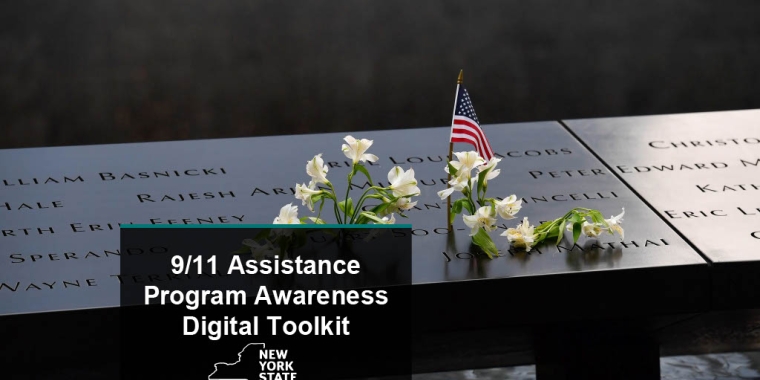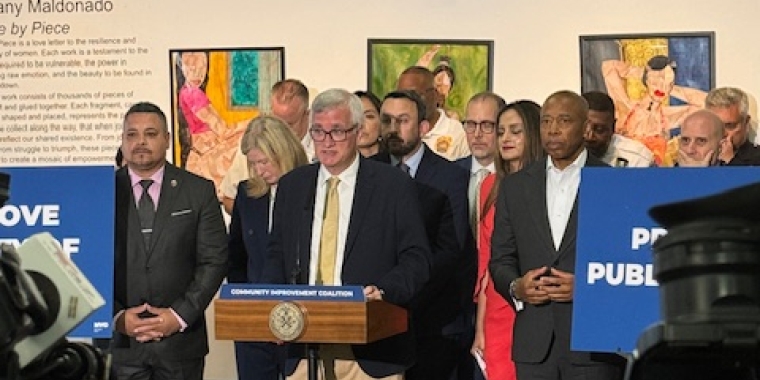City & State: How Will New York Convert Unused Buildings into Housing?

New York State Senate Deputy Majority Leader Michael Gianaris | NYS Senate Media Services
On April 20, 2021, Rebecca Lewis reported in City & State on the Senate's proposals to convert hotels into affordable housing. The full text of the article is below; the original is available via the link above.
_______________
How Will New York Convert Unused Buildings into Housing?
Lawmakers are ironing out the details on a plan to renovate office buildings and hotels. It’ll cost much more than what they’ve set aside.
By Rebecca C. Lewis
April 20, 2021
With the tourism industry still struggling and many people working remotely, Gov. Andrew Cuomo and lawmakers raised the prospect of converting distressed hotels and office buildings into housing as part of the state budget. Many of those buildings are sitting empty, and there could be an opportunity to turn them into housing as a way to help address New York City’s ongoing housing and homelessness crisis. But no specific proposal made it into the final spending plan. Lawmakers set aside $100 million in funding for building conversions in anticipation of a proposal, but that’s not nearly enough to accomplish what many housing advocates hope for. And time is ticking to get started before the economy rebounds and the buildings and construction are too expensive again to take action.
Cuomo and lawmakers had dueling proposals to spur hotel and office building conversions. Cuomo focused on making it easier for-profit developers, while lawmakers wanted to get those buildings into the hands of nonprofits. The governor proposed an easing of zoning laws developers could take advantage of, so long as a percentage of the new housing was affordable. Housing advocates and lawmakers proposed creating a new program through which the state would buy distressed hotels and office buildings, then work with nonprofit developers to convert them into 100% affordable housing with a large percentage of units set aside for people experiencing homelessness. Lawmakers proposed spending $250 million.
Unable to reach a consensus during budget negotiations, lawmakers appropriated $100 million with the expectation of developing and passing program language later. Until then, that money can’t actually be used. While it’s certainly not pocket change, $100 million is not nearly enough to scale out a commercial property conversion program. One 2018 hotel acquisition in Brooklyn by the nonprofit Breaking Ground, which has been converting hotels into permanent affordable and supportive housing for decades, cost $170 million and will result in about 500 apartments. While buying and converting existing buildings is generally cheaper and easier than building entirely new housing from scratch, $100 million can really only go so far.
The $100 million placeholder fund is somewhat symbolic, according to state Sen. Michael Gianaris, one of the architects of the Legislature’s proposal. “It’s probably enough to purchase like, one (building),” he said. Gianaris sponsored the Housing Our Neighbors with Dignity Act – or HONDA – as part of the state budget. “It was intended to just say that we are committed to this and to put real state money behind it and then continue to work on getting additional funding.” Gianaris said that ideally, the federal government would provide significant additional funding, possibly in the hundreds of millions or even billions of dollars. He said that he has had good conversations with U.S. Senate Majority Leader Chuck Schumer’s office about those funds. A spokesperson for Schumer did not return a request for comment. The latest stimulus package also includes $5 billion in grants to provide housing for homeless people, which includes hotel conversions. “If for some reason, the federal government comes up short, then we'll have to look at what we can do as a state, but it'll be a much, much smaller program, obviously,” Gianaris said.
Housing advocates, who are disappointed that the budget did not include language establishing the program, are under no illusions about what can get done with $100 million either. “I think we're talking about b’s, instead of m’s, billions instead of millions,” said Samuel Stein, a housing policy analyst at the Community Service Society. He said $100 might be enough to do a couple of demonstration projects, if necessary.
Gianaris’ proposal has gotten criticism from private developers for leaving them out – the Real Estate Board of New York was supportive of Cuomo’s proposal to offer a workaround of local land use rules to avoid rezonings, even if it didn’t provide any extra state funds for new incentives or support. “This is a matter of focusing on facts and data rather than ideology,” REBNY President James Whelan said in a statement. “Any conversions program that successfully produces affordable housing and strengthens New York City’s central business districts will require collaboration between the public and private sectors.”
Developers and nonprofits often partner on projects to create low- and moderate-income affordable housing. Developers are able to offer building expertise and capital to nonprofits that normally may not be able to handle such projects. “For stuff like this, you've got, I don't know, maybe a dozen major, major not-for-profit organizations around the city that would have the capacity to do this,” said Ken Fisher, a real estate lawyer at Cozen O’Connor. But Stein of Community Service Society pushed back on the idea that there is a lack of nonprofits who would be able to utilize the HONDA program, or that for-profit developers would need to get involved. “I don't think there's any lack of interest or capacity from nonprofits to do this,” Stein said. “What there is, is the lack of opportunity and funding, and this would be the mechanism to change that.” And while the governor’s zoning proposal and HONDA don’t inherently seem to be at odds, Gianaris said that if private developers buy distressed properties, there’s inherently less for nonprofits to work with. “I don’t think there are the resources to do both,” Gianaris said.
Gianaris’ HONDA proposal doesn’t include any easing of zoning restrictions or workarounds, unlike the California model. “I think it would be very difficult to point to California as proof of concept if you aren’t doing regulatory relief as well,” said Noah Kazis, a legal fellow at the NYU Furman Center, which focuses on housing policy and research. “Without the regulatory relief, there will be opportunities, but some of them will be just impossible.” He said that going through the New York City Uniform Land Use Review Process for rezonings can take years, at which point the market may have recovered and the opportunity for a cheaper conversion may have passed. Some affordable housing developers hope that the state does pass some sort of regulatory relief to aid in the conversion of hotels, though they have problems with the governor’s proposal. State Sen. Brian Kavanagh and Assembly Member Steve Cymbrowitz have legislation, drafted through consultation with nonprofits, that would automatically approve certain hotels for residential use as long as they are converted to low- and moderate-income housing.
But for now, this is all speculative as the state has only appropriated $100 million for a program that does not yet exist. And until the Legislature passes something, that money will sit unused as New York creeps closer to a return to a semblance of normalcy and vaccination rates go up. It still may be years before the hotel and tourism industry fully bounces back, but all it takes is a sign that it’s on the upswing for prices to start going up and the stock of distressed buildings goes down. Now, Gianaris is focused on getting his bill passed before the end of session in June so that the state Division of Housing and Community Renewal can start getting the program fully established. “The need is immediate,” Gianaris said in terms of getting housing to those who need it. And the window to convert those units is limited.
Rebecca C. Lewis is a staff reporter at City & State.
@_rebeccaclewis
###



